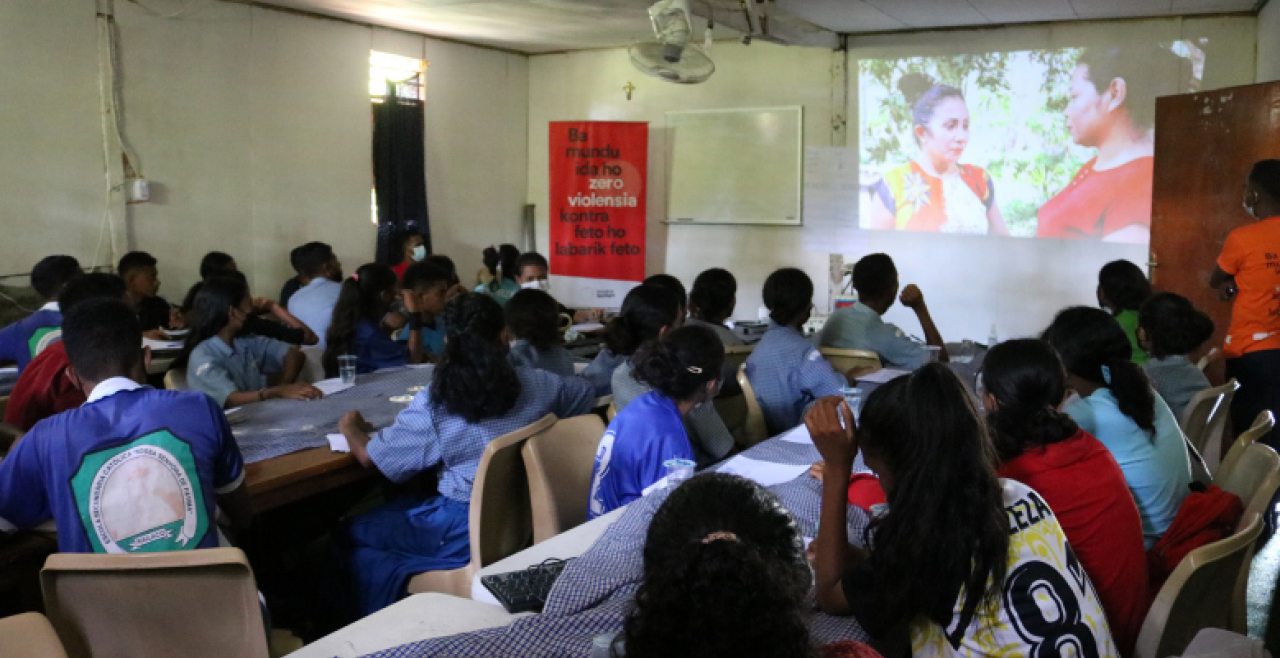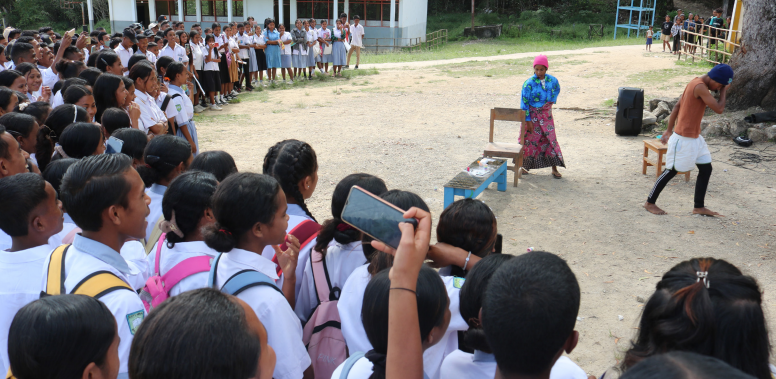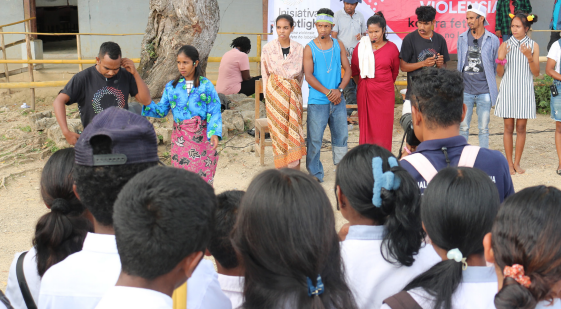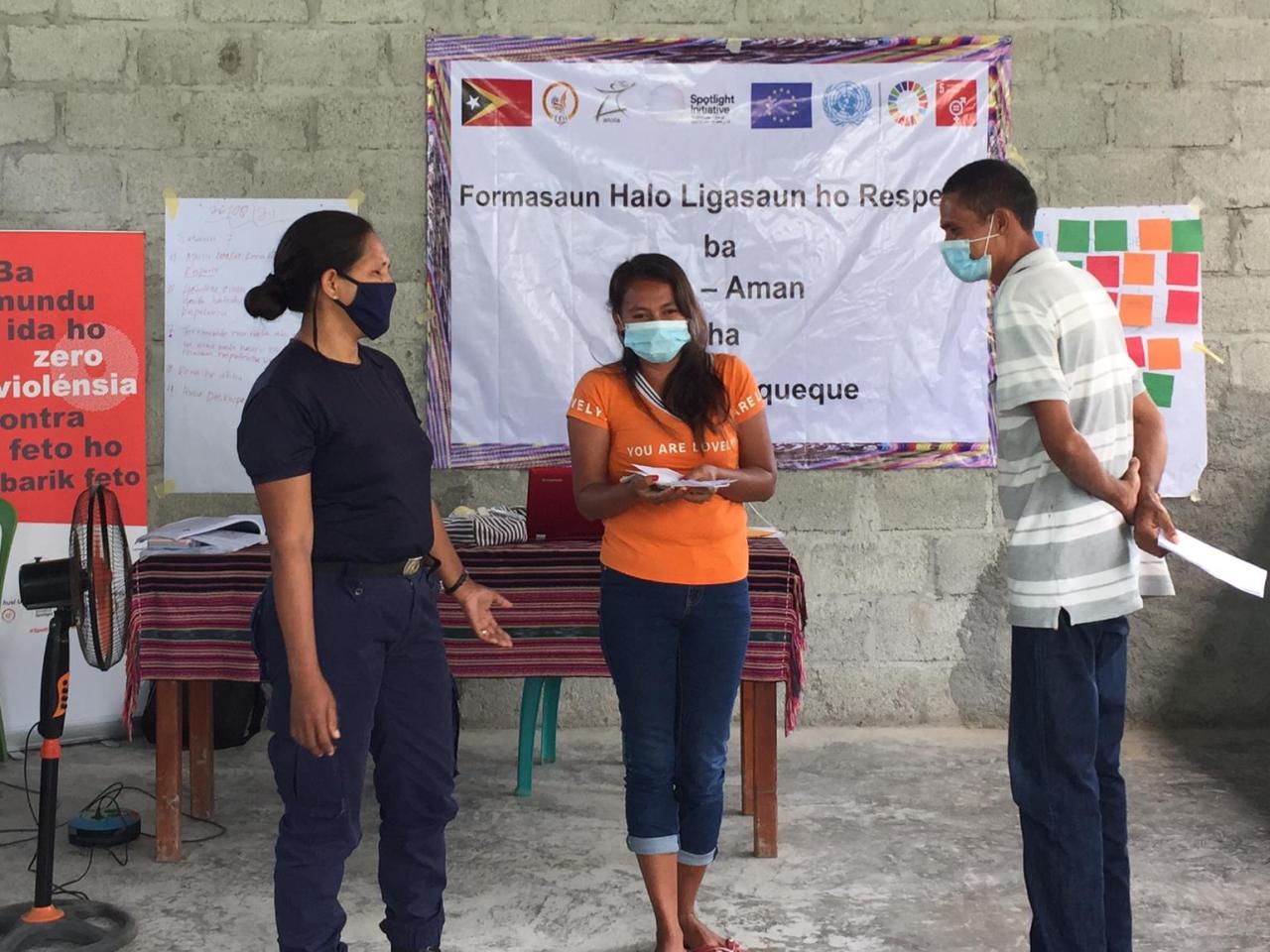In Timor-Leste, using film to change harmful gender stereotypes and support girls and women experiencing violence

Timor-Leste – Women and girls in Timor-Leste are disproportionately affected by poverty, have limited access to essential services and are disempowered by high fertility rates. This increases their risk of and exposure to domestic violence and abuse.
“We rarely talk about violence that happens in our own community, even though the evidence has shown that it is really common.” - Film screening attendee
In 2016, over half of women who had been in a relationship had experienced physical and/or sexual abuse. Around 19 per cent of girls marry before age 18, putting them at even greater risk. Almost half of girls aged 14–19 who are married experience physical or sexual violence by their partners.
Used to a culture of silence, women and young girls are afraid to come forward to report and discuss their experiences due to fear of retaliation or being judged by their community. In 2016, 74 per cent of women surveyed said they felt husbands were justified in hitting their wives, and 80 per cent of those who reported experiencing violence never sought help.
In just one of the municipalities where UNICEF is implementing Spotlight Initiative, 88 per cent of women reported never seeking help or telling someone after experiencing abuse at the hands of their partner. To address these harmful opinions and practices, Spotlight Initiative through UNICEF in Timor-Leste partnered with the local non-profit organization Ba Futuru to develop a film series for young people.
Working collaboratively with the Ministry of Social Solidarity and Inclusion and three other local non-profits, six episodes of the flagship programme Domin Nakloke were developed. The episodes focus on topics of sexual harassment, consent, teen pregnancy, respectful relationships, positive parenting and encouraging community members to take part in preventing violence in domestic settings.
Alongside the production of four additional segments, change-makers (youth and representatives from local civil society and grass-roots groups) and officials from the Ministry of Social Solidarity and Inclusion took part in a five-day training course. Participants were trained to facilitate community film screenings and discussions. They were also provided with foundational knowledge on preventing violence against women, girls and children, anger management, conflict resolution and positive parenting.
“Today I know how to help [women and girls] when they face violence because I know where to get assistance." - Participant
“We rarely talk about violence that happens in our own community, even though the evidence has shown that it is really common” said one participant. “It is even rarer to talk about violence that affects persons with disabilities. We need to continue talking about violence, so we can find solutions together.”
Recent community film screenings of the final two segments were organized in 190 locations across the country, reaching people not only in person but on Facebook and YouTube. Men – in particular, husbands and community elders – expressed enthusiasm for the screenings and actively participated in discussions.
The film series received positive reviews from viewers. Overall, 95 per cent of viewers interviewed after watching the first three episodes found the material relevant to their lives, and 97 per cent of viewers reported that the series made them think about how to have better relationships, without violence.
“Often, I saw my friends [women] suffer violence, and I think this is a family problem [domestic issue, not to be meddled with],” said another. “Today I know how to help them when they face violence because I know where to get assistance, and I also know some of the protective officers in our municipality. I thank my children who have come too, to our place to share information about preventing violence against us women and children. I hope by these activities the number of violence against women and girls will be lower.”
The project also actively engaged members of the LGBTQI+ community and those with disabilities, who provided positive feedback on the event too. One screening participant identifying with the LGBTQI+ community said, “These activities are very special for me and others because I noticed after the screening some of my friends slowly changed their minds. They are not calling me Mamar15 anymore. They call me by my name, and I think a few of them have started to respect me.”
“These activities are very special for me and others because I noticed after the screening some of my friends slowly changed their minds." - Participant
For the second phase of the project, UNICEF and local partner Ba Futuru are holding theatre workshops in rural areas of Timor-Leste, enabling communities to create their own theatrical events. Local youth receive basic theatrical training, connecting them to the country’s strong culture of oral storytelling. Stories are customized to the individual characteristics and needs of each community. Results have demonstrated the power of the series to increase knowledge and shift attitudes around healthy relationships. With drama as an accessible and engaging way to spread messages and promote positive norms, and an integral part of Timor-Leste’s culture, the project hopes to reach even more people with messages about behaviour change.
Originally published in ‘Together for Change: Documenting the fight to end violence against women and girls in the Pacific, the Caribbean and Central Asia’.



